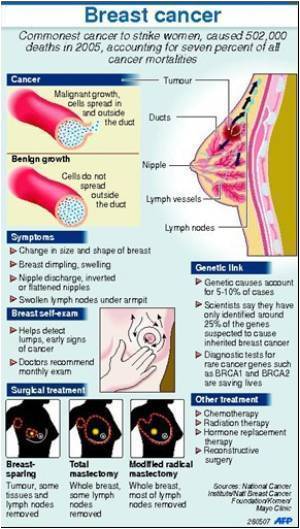Researchers at the CHUM Research Centre (CRCHUM) and the Peter MacCallum Cancer Centre in Australia have developed a new treatment avenue for treating breast cancer.

Researchers have discovered that in addition to blocking cell proliferation, Herceptin also stimulates the production of interferons, which in turn activate immune cells called lymphocytes.
The new study supports the view that the presence of lymphocytes in tumours enhances treatment success.
In addition to revealing the precise workings of Herceptin, it also shows that combining Herceptin with a therapy that stimulates lymphocytes greatly increases its efficacy in animals.
"These findings open another avenue for breast cancer treatment for nearly a third of all women who are affected," said Stagg, who is affiliated with the Faculty of Pharmacy at the University of Montreal.
Source-ANI















